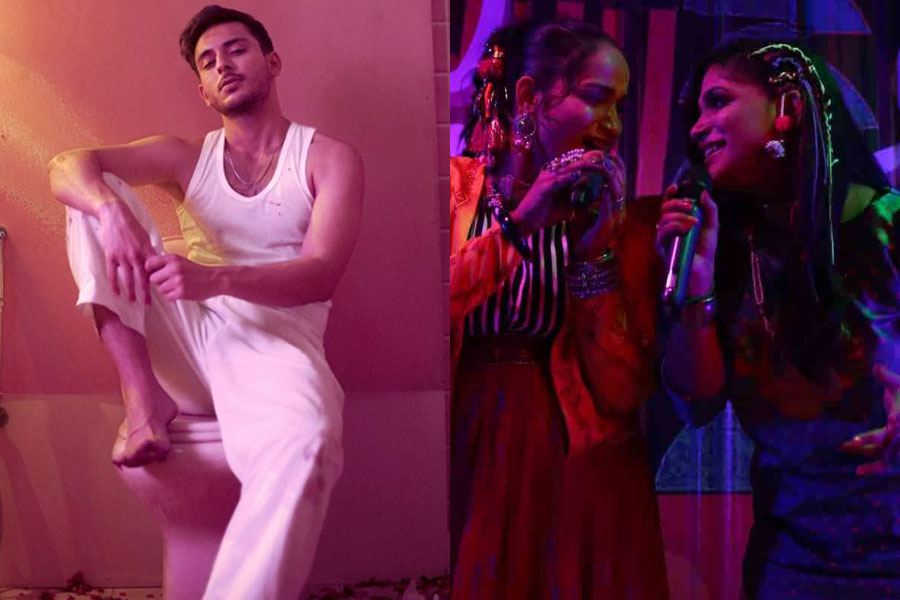Pakistani singer Hasan Raheem has declared his popular song ‘Pechay Hutt’ as Aurat March‘s anthem. The crooner took it to Twitter to share his two cents.
In the first tweet, the ‘Nautanki’ singer wrote that he started writing the song from the lyrics ‘rasta choriye ab ham aagaye‘ for Justin Bibis and now it has become the voice of the women of Pakistan. He added that the oppression has to end.
Moreover, he continued that he stands in solidarity with the brave women of Pakistan who are out on the streets to demand their rights and are fighting for gender equality. Adding on that we must listen, we must support, and we must act.
Hasan Raheem concluded the message by writing ‘Dua yehi hai kay Allah sabko apney hifzo amaan main rakhey aur hamey amal karney ki silahiyat day.’
Peechay hutt is the anthem of aurat march aur ye gaana ab isy movement ka hai.
I started writing the song with “Rasta choriye ab ham agaye” for Justin bibi’s and now it’s become the voice of the women of Pakistan. The oppression has to end !!!— hasan raheem (@hasanraheeem) March 14, 2023
‘Faltu Pyar’ Singer Natasha Noorani Shares Advice for Girls Who Settle for ‘Mediocre Boys’
Netizens Appreciate Hasan Raheem’s Message
Here’s how Twitter reacted to his message:
King you're about to see trolls attacking you
Ignore them and keep rocking💫— Izzah (@Izzah_adnan2) March 14, 2023
you couldn’t get any more perfect
— dikkie (@dikkie143) March 14, 2023
yasssss 🌸🌸 i just HAPPENED to play this while i was making my placard/getting ready because i felt this was the vibe i needed
— Preloved Feminist (@agirlhasnogames) March 14, 2023
King for a reason
— Harry's hoe fr (@humeshasecutuhu) March 14, 2023
Thank you for saying that Hasan 🥹❤️
— Amy A (@MarvelousMrsA) March 14, 2023
Why March is Women’s History Month
March is Women’s History Month, and in Pakistan, it is a crucial time for women’s rights awareness. This month is an opportunity to recognize and celebrate the achievements of women throughout history, but also to reflect on the ongoing struggle for gender equality and the obstacles that women still face in Pakistani society.
Pakistan is a country where women have been marginalized for decades, and they continue to face discrimination in many areas of life. This includes access to education, healthcare, employment opportunities, and political representation. Women in Pakistan are often subjected to violence, harassment, and abuse, and their rights are frequently violated with impunity.
The importance of Women’s Month in Pakistan lies in its potential to raise awareness about these issues and mobilize people to take action. It is an opportunity to engage in dialogue about the challenges facing women in Pakistan and to work towards solutions that promote gender equality.
One way to promote women’s rights awareness during Women’s Month is by highlighting the achievements of women who have made a significant impact in Pakistan. For example, Malala Yousafzai, a young activist for girls’ education, became the youngest Nobel Peace Prize laureate in 2014. She has since continued to advocate for girls’ education and women’s rights in Pakistan and around the world.
Another way to promote awareness is by organizing events and discussions that focus on women’s rights issues. This can include workshops on topics such as domestic violence, sexual harassment, and gender discrimination in the workplace. It can also involve film screenings, lectures, and panel discussions that highlight the experiences of women in Pakistan.
One of the key issues that Women’s Month can address is the lack of representation of women in politics and decision-making positions. Women make up only a small percentage of Pakistan’s parliament and have limited influence in policymaking. This lack of representation has serious consequences for women’s rights and the development of gender-responsive policies in Pakistan.
Women’s Month is an opportunity to push for greater political representation for women in Pakistan and to highlight the need for gender-sensitive policies. It can also be a time to recognize the contributions of women leaders who have made a difference in their communities and to encourage more women to pursue leadership roles.
